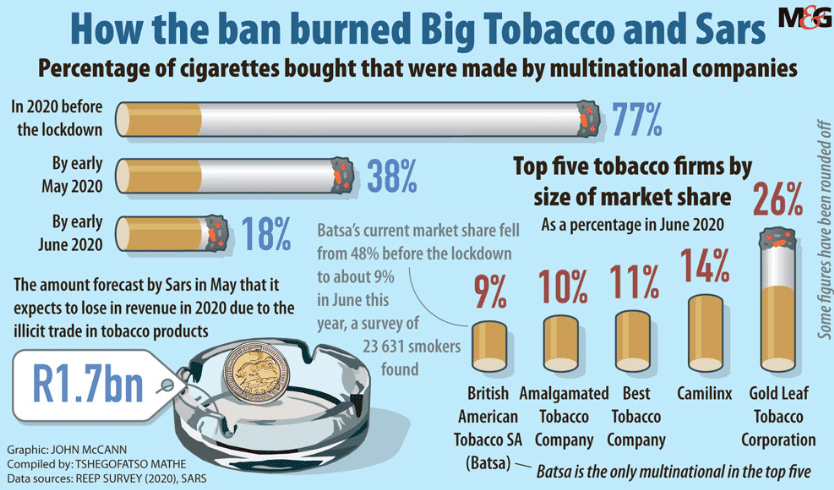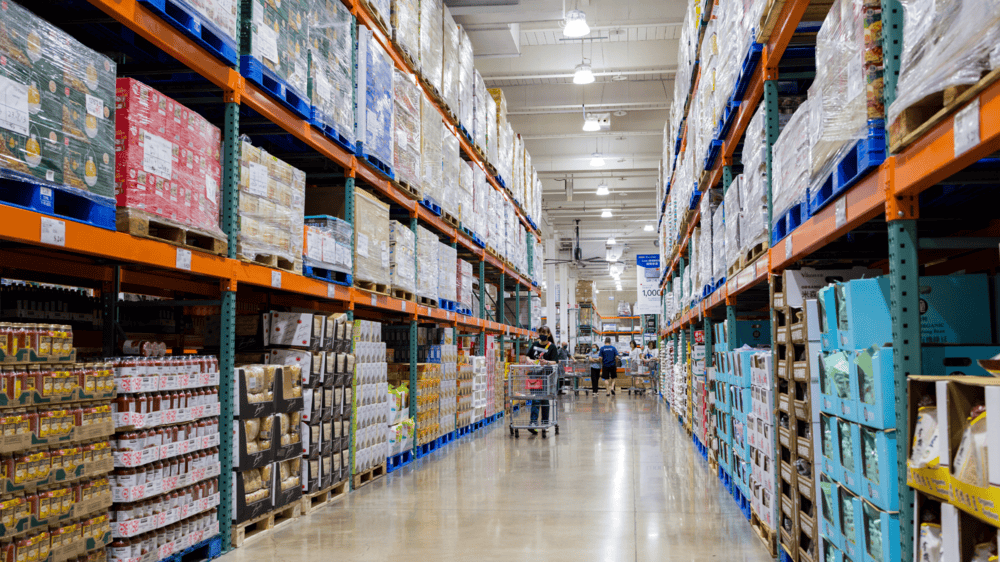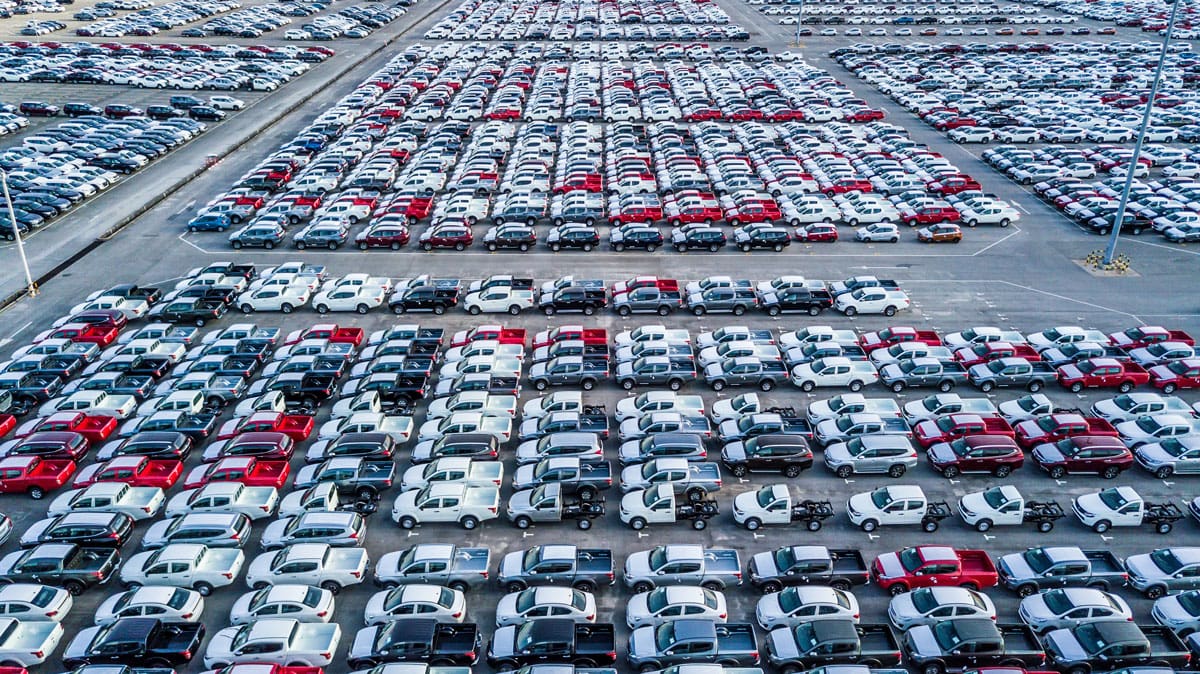The rise of illicit cigarettes in South Africa: What next?
Why cigarettes are highly regulated
Cigarettes are highly regulated in South Africa and fall under the umbrella of items subject to sin taxes. This is due to their addictive nature and the complexity of safeguarding public health, aided by health warnings that smoking is bad and dangerous for your health.
Tackling the issue of illicit cigarettes in South Africa requires a comprehensive approach by various stakeholders including government agencies, lawmakers, and industry stakeholders by sharing resources and information to effectively combat the scourge.
The price difference between legal and illicit cigarettes will always be tempting for shady operators who rob the government of a significant amount of tax. Tax makes legal cigarettes expensive, and fighting the lucrative illicit trade adds to costs of legal cigarettes.
The rise of illicit cigarette trading
The five-month long ban on selling cigarettes in South Africa during the pandemic triggered unintended consequences of serious proportions. In the absence of cigarettes from tobacconists and retailers, some smokers desperately searching for cigarettes managed to find them on the black market.
This became an incredible boon to illicit cigarette peddlers who built a vast under the table distribution network, sustained beyond the lifting of the ban as smokers discovered how easy and a lot less expensive it is to buy cigarettes at a much lower cost.
The WOW report on the Tobacco industry in South Africa indicates that illicit trade took off from 2010, about the same time that new South African manufacturers sought to take advantage of the high prices for cigarettes charged by British American Tobacco South Africa (BAT SA), Japan tobacco International (JTI) and Philip Morris. In 2010, the illicit economy was for the first time estimated to be as high as 10% of the total market. By 2018, studies on the illicit market by Ipsos found it accounted more than 33% and was dominated by Gold Leaf Tobacco’s Remington Gold brand. The market share of illicitly sold cigarettes increased during the five months ban in 2020, and it was estimated that the share of illicit cigarettes had grown to between 54% and 60% of the market by 2022. BATSA’s loss of market share saw it reduce tobacco orders by 12.5% in 2021. BATSA has also on previous occasions said it considered closing its South African factory and considered sourcing processed tobacco from overseas rather than locally from Limpopo Tobacco Processors.

How the cost of living is driving the illicit trading of cigarettes
The government cannot rely on a moral barrier to stop buying cheap illicit cigarettes over expensive legal cigarettes. The price difference amounts to taxes, but the cognitive dissonance of buying illicit cigarettes is low to non-existent. Consumers are battling to make ends meet and find the solace of cheaper cigarettes acceptable even if borderline illegal.
Once the can of worms has been opened, it has become nigh impossible to re-can those worms, and the biggest loser is the government.
The impact of illicit trading of cigarettes on multinationals
Understandably, BAT joined forces with government to push back against the illicit cigarette trade, and is frustrated by the lack of progress, as this comes on top of continued and increasing measures to make legal cigarette trade and consumption more difficult. Not surprisingly, BAT’s workforce is down by a third, as if you sell less, you produce less and therefore require less manpower. Some of that workforce shifted to the illicit cigarette manufacturers, which pay much less taxes, if at all. The loss to the economy and employment is not in the main caused by the identity of the manufacturer but by the restrictions on and lower consumption of cigarettes.
It has become a real catch-22 situation for the government which probably will cut its nose to spite its face and continue to increase sin taxes on cigarettes in the Budget, which will inevitably drive more people towards the illicit cigarette trade.
While there seems to be progress to stub out the illicit trading of cigarettes, the resilience of this trade presents complex dynamics of taxation, public health, and economic repercussions. The resilience of the illicit market poses a formidable threat, demanding urgent and collaborative intervention by all stakeholders concerned.
Contact us to access WOW's quality research on African industries and business
Contact UsRelated Articles
BlogCountries South AfricaWholesale and retail trade repair of motor vehicles and motorcycles
South Africa’s Food Retail & Wholesale Market 2025: Growth, Trends, and Challenges
Contents [hide] Who Owns Whom’s report on the wholesale and retail of food in South Africa highlights critical shifts in the industry amid ongoing debates about VAT increases. With food...
BlogCountries South AfricaWholesale and retail trade repair of motor vehicles and motorcycles
How South Africa’s Local Footwear Brands Are Winning the Digital Race
Contents [hide] The importance of adapting to change when taking brands to the market Many a good brand has died a sad death due to lack of access to markets...
BlogCountries South AfricaWholesale and retail trade repair of motor vehicles and motorcycles
The importance of the motor industry in South Africa
Contents [hide] The motor vehicle industry in South Africa has been an important driver of the country’s economy in terms of GDP contribution and job creation. According to industry association...





